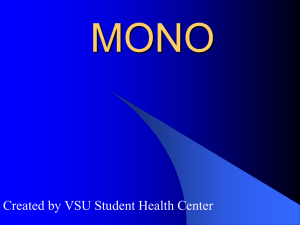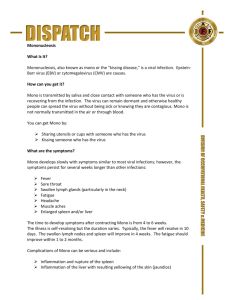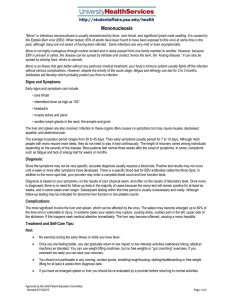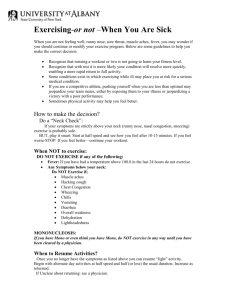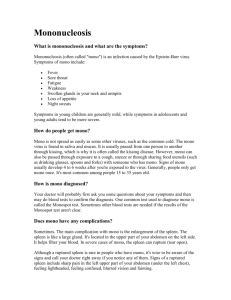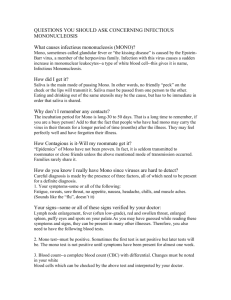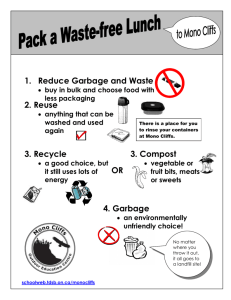INSTRUCTION SHEET: MONONUCLEOSIS University of North Carolina Wilmington Abrons Student Health Center
advertisement
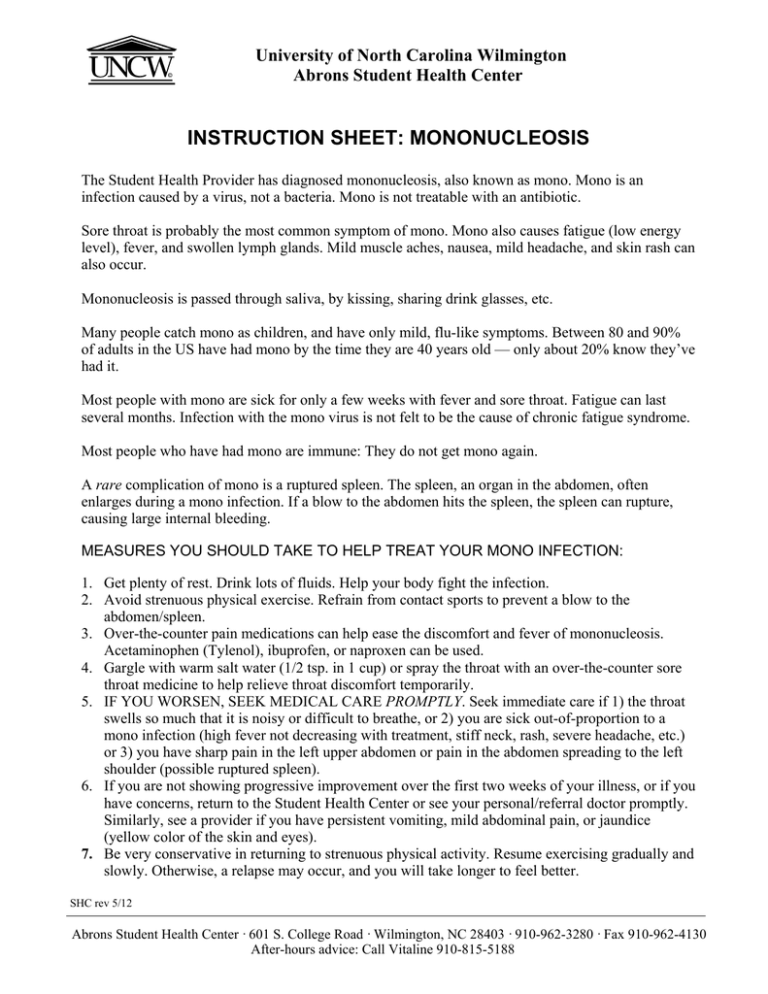
University of North Carolina Wilmington Abrons Student Health Center INSTRUCTION SHEET: MONONUCLEOSIS The Student Health Provider has diagnosed mononucleosis, also known as mono. Mono is an infection caused by a virus, not a bacteria. Mono is not treatable with an antibiotic. Sore throat is probably the most common symptom of mono. Mono also causes fatigue (low energy level), fever, and swollen lymph glands. Mild muscle aches, nausea, mild headache, and skin rash can also occur. Mononucleosis is passed through saliva, by kissing, sharing drink glasses, etc. Many people catch mono as children, and have only mild, flu-like symptoms. Between 80 and 90% of adults in the US have had mono by the time they are 40 years old — only about 20% know they’ve had it. Most people with mono are sick for only a few weeks with fever and sore throat. Fatigue can last several months. Infection with the mono virus is not felt to be the cause of chronic fatigue syndrome. Most people who have had mono are immune: They do not get mono again. A rare complication of mono is a ruptured spleen. The spleen, an organ in the abdomen, often enlarges during a mono infection. If a blow to the abdomen hits the spleen, the spleen can rupture, causing large internal bleeding. MEASURES YOU SHOULD TAKE TO HELP TREAT YOUR MONO INFECTION: 1. Get plenty of rest. Drink lots of fluids. Help your body fight the infection. 2. Avoid strenuous physical exercise. Refrain from contact sports to prevent a blow to the abdomen/spleen. 3. Over-the-counter pain medications can help ease the discomfort and fever of mononucleosis. Acetaminophen (Tylenol), ibuprofen, or naproxen can be used. 4. Gargle with warm salt water (1/2 tsp. in 1 cup) or spray the throat with an over-the-counter sore throat medicine to help relieve throat discomfort temporarily. 5. IF YOU WORSEN, SEEK MEDICAL CARE PROMPTLY. Seek immediate care if 1) the throat swells so much that it is noisy or difficult to breathe, or 2) you are sick out-of-proportion to a mono infection (high fever not decreasing with treatment, stiff neck, rash, severe headache, etc.) or 3) you have sharp pain in the left upper abdomen or pain in the abdomen spreading to the left shoulder (possible ruptured spleen). 6. If you are not showing progressive improvement over the first two weeks of your illness, or if you have concerns, return to the Student Health Center or see your personal/referral doctor promptly. Similarly, see a provider if you have persistent vomiting, mild abdominal pain, or jaundice (yellow color of the skin and eyes). 7. Be very conservative in returning to strenuous physical activity. Resume exercising gradually and slowly. Otherwise, a relapse may occur, and you will take longer to feel better. SHC rev 5/12 Abrons Student Health Center · 601 S. College Road · Wilmington, NC 28403 · 910-962-3280 · Fax 910-962-4130 After-hours advice: Call Vitaline 910-815-5188
